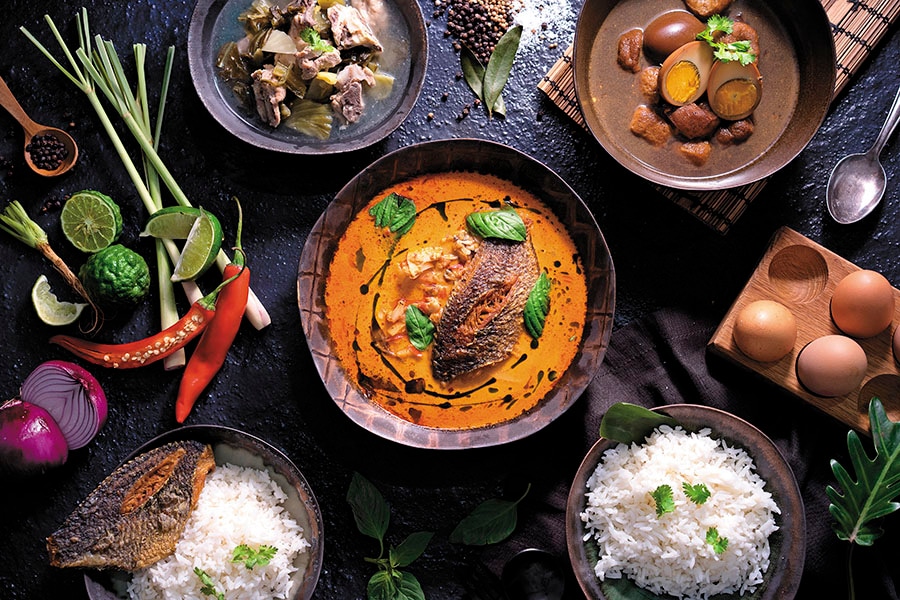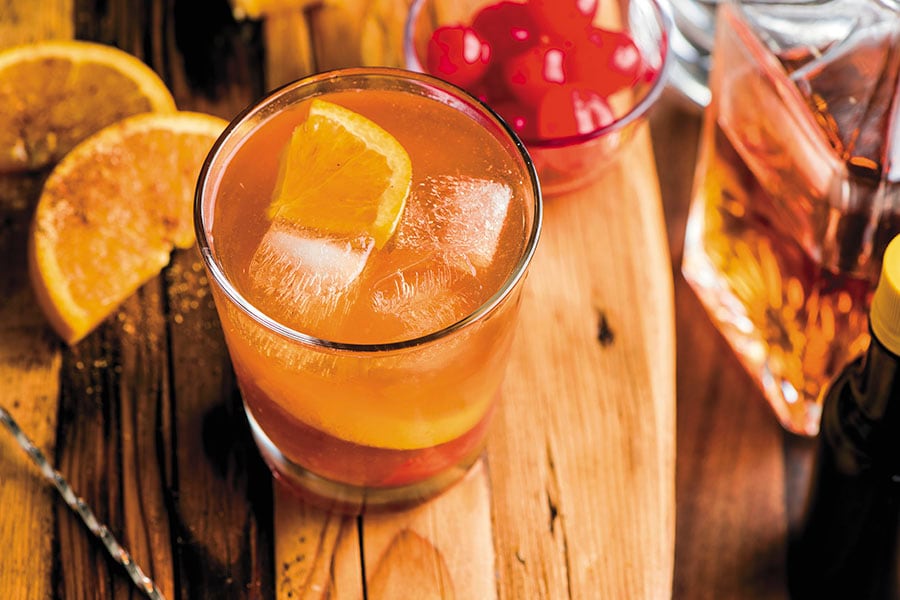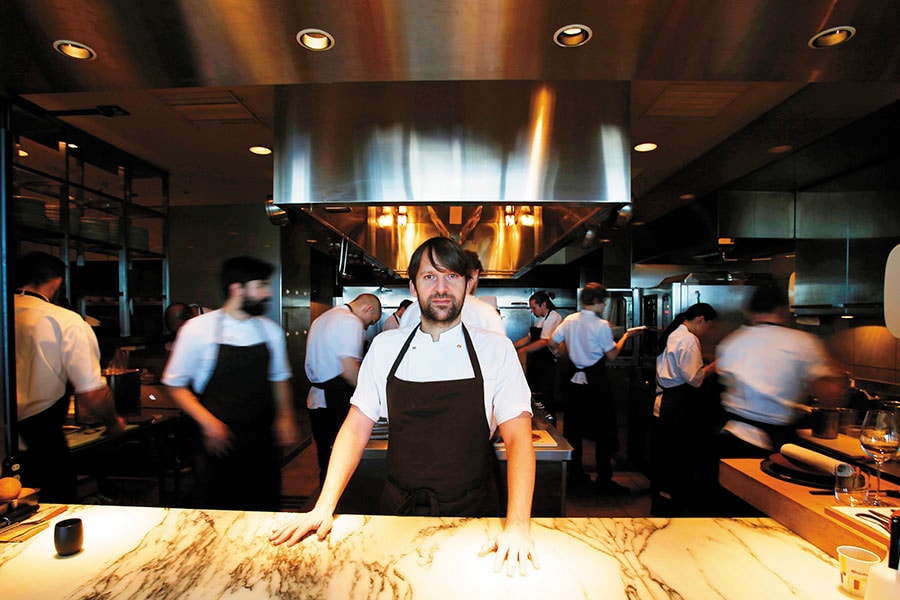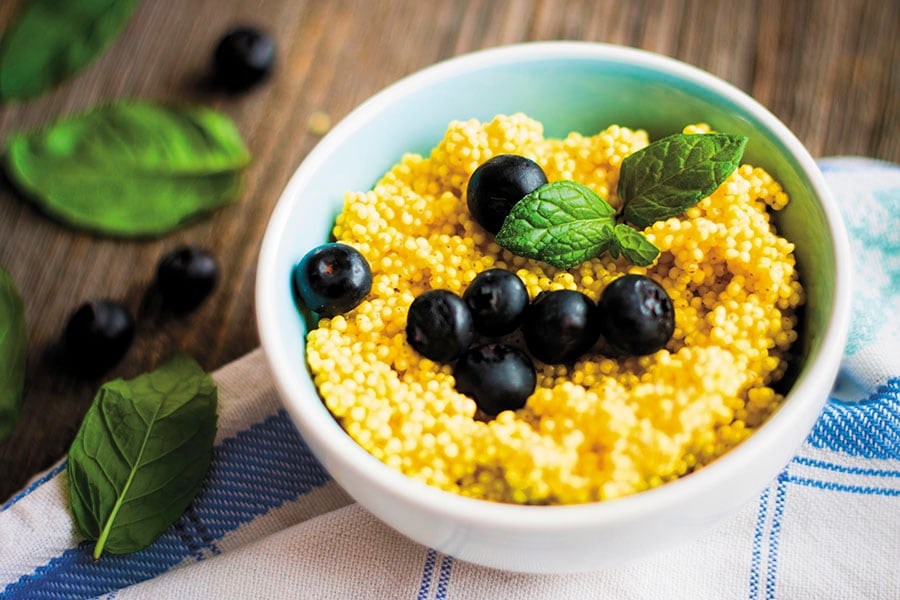
What's for dinner? A delicious year ahead for food lovers
Get ready for fresh flavours, new twists and old favourites in 2018

Are you ready to bite into 2018 with zest and passion, and with fewer pictures on Instagram? The latter probably won’t happen, we know, but all signs point to a delicious year ahead.
Liquid nitrogen-fuelled, drama-filled dishes and drinks in lab apparatus (or hospital and jailware) are finally behind us, while more real and robust flavours await us. The flip side is the inevitable rise in competitive dining: Everyone is a critic and expert on food; the year ahead will only see the tribe grow. The best thing to do with food, however, is to ignore other people’s opinion of it, and taste everything you fancy for the sheer pleasure of it.
Haute Thai: It’s one cuisine that’s never quite been trendy, despite being popular and familiar. But this year, look beyond the green curry on generic Asian menus because Thai is getting fashionable. Nara Thai in Mumbai’s Bandra-Kurla Complex set the tone a few months ago with its blue rice (coloured by butterfly pea flowers), layered desserts, quality ingredients and soulful flavours. We now hear of an ambitious modern Thai diner coming up in the vicinity of Delhi’s Qutab Minar.
Adding to the aura around Thai cuisine is the inaugural Michelin Guide Bangkok, which was launched in December. So if you are travelling all the way to the Thai capital for authentic fare, expect more accent on luxury dining, while its influences wash up on our shores.
Pisco sour: Till about a year ago, the grape brandy (it is fresher in taste than the barrel-aged products from Europe) from the wine-making regions of Peru and Chile was hard to come by in Indian bars. Now, the Peruvian embassy is serious about its pisco promotion. Increased availability plus a marketing push is set to make light, fresh and frothy pisco sours go mainstream.

More of whisky: Whisky is transcending its age-old image, and gathering a following among the women and the young. Whisky cocktails, too, are set to get more popular as Millennials and women warm up to Old Fashioneds. There’s more to pick from as well, with Indian whisky brands getting more recognition—Paul John’s Kanya was named the Asian Whisky of the Year by Jim Murray’s Whisky Bible—and newer bourbons and ryes eying the Indian market.

Image: Yuva Shino / Reuters
Fermented foods: Fermentation is getting bigger in India. Chefs inspired by Rene Redzepi’s Noma—with its core philosophy of working with fermented foods and a fermentation lab—have been pushing the envelope by curing, ageing and pickling seasonal, local ingredients. Top chefs such as Bengaluru-based Manu Chandra (of Toast and Tonic, and Olive Beach), Mumbai’s Vikramjit Roy (of POH), and their younger counterparts such as Abhishek Gupta (at The Leela in Gurugram) are turning their kitchens into labs, as flavours get intense and probiotics work their goodness on our guts.
Expect to find more lacto-fermented syrups, preserves, fermented tomato peels, water pickles, indigenous cheeses, house-cured meats, kimchis on your plates, and perhaps in your cocktail glass too.

Image: Prasad Gori
Ready to be served
These projects are still under wraps, but here’s first dibs: Manish Mehrotra’s next after Indian Accent London at Gurugram’s One Horizon Center; relaunch of restaurants at The Oberoi, New Delhi, including a modern Indian diner helmed by London-based Alfred Prasad; Riyaaz Amlani’s new collaborative project under the Social umbrella at Kamala Mills, Mumbai; Anjan Chatterjee’s new Asian brand in Delhi conceptualised by Vikramjit Roy; Zorawar Kalra’s new standalone in Delhi.
Go Goa: Modern Indian food is no longer about plating drama but regional cuisines formatted in chic, casual ways. So far the specialty of locally-loved small restaurants, Goan food is now going big with restaurateurs such as Mumbai’s O Pedro, and Bengaluru’s Lady Baga and Nossa Goa, which opened in 2017. There will be more to sample this year as the trend gets rolling.
The other local flavours reaching mainstream will be from the northeast and northern hills as chefs begin to play with these. Keep your taste buds ready for akhuni, jhakiya, tenga and their ilk.

Image: Tony Gentile / Reuters
Celebrity cooking: MasterChef Australia judges George Calombaris and Gary Mehigan were almost a fixture in India in 2017. The Indian diner’s new penchant for international food celebrities means there will be more pop-ups by famous chefs in 2018. Though 2017 saw quite a line-up of star chefs who came calling—from Dharshan Munidasa of Sri Lanka’s Nihonbashi and The Ministry of Crab, and Gaggan Anand to the revered Massimo Bottura of Osteria Francescana in Italy—the jury is still out on the financial models of these pop-ups, given the high costs of setting them up. It will be worth watching how much the price-conscious Indian diner is willing to pay for celebrities.
Home-chef dishes In restaurants: Studios, pop-ups and meal experiences by home chefs have been trending, but what will be interesting to watch are the collaborations home chefs strike up with big restaurants as the latter struggle to find new ways to be inventive. Early examples in 2017 were restaurants like Mumbai’s SodaBottleOpenerWala and The Bombay Canteen putting up special menus, festive fare and bowls curated by home chefs. In 2018, one such tie-up to watch out for will be Jamun, a trendy Indian diner by PCO’s Rakshay Dhariwal, which will come up in Delhi in January and crowdsource its regional recipes. We also hear that Mumbai’s The Bohri Kitchen is set to open a small format restaurant in collaboration with a big restaurant company. Watch this space.
Delhi food in Mumbai: As restaurant brands from the National Capital Region increasingly seek a Mumbai audience, we will see the likes of restaurateur Priyank Sukhija, who ruled Hauz Khas Village, turning his gaze to Lower Parel. More projects are on the anvil, including restaurateur Ashish Kapur’s The Wine Rack, which will be a reworking of Gurugram’s The Wine Company.

Millets: Interesting local vegetables and grains have been taking up more space on menus. Millet biryanis, khichdis, breads and desserts will be increasingly pervasive as consumers get more aware and chefs more experimental. Like the quinoa salad a year ago, you won’t be able to escape millets in restaurants. And although this is one fad we don’t mind, we do need to watch out against its over-marketing, as was the case with the South American grain.
(This story appears in the 30 November, -0001 issue of Forbes India. To visit our Archives, click here.)
X




